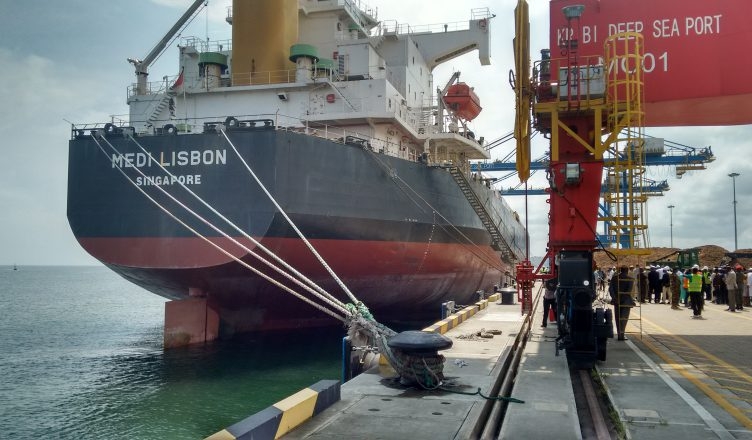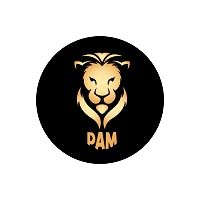
Port of Kribi : First commercial vessel anchors at the Port of Kribi
After several months of waiting, the PAK has been able to welcome the large cargo ship Medi Lisbon, which indicates its capacity and willingness to play a leading role in Cameroon and in Africa.
On 22 June 2017, it was obvious that the General Manager of the PAK, Patrice Melom, was happy and in jubilation as he savoured the spectacular images of the entry into the waters of the Mboro harbour of the first large capacity ship, specialised in the removal and transport of biomass cargoes. The Medi Lisbon: a 189m long bulk carrier chartered by Biomass Cameroon for the unprecedented shipment of 27,500 tons of rubberwood chips. The ship docked at 8:00 am and took seven days to fill its holds with a volume of 27,000 tonnes of products for export to Ireland. This was the very first technical and commercial operation of this scale, led by the Port Authority of Kribi, with the participation of all the actors and operators institutionally and functionally involved in the future exploitation of the multipurpose terminal, a key infrastructure of the Mboro site. An operation which, according to Patrice Melom, was of major importance in at least two ways: it represented the very first ordinary activity subject to commercial invoicing that the Port Authority of Kribi has carried out, since the formal establishment of the company and the effective appointment of its teams, by presidential decree, on 29 June 2016; and at the symbolic level, it reveals the determination of a decisive capacity of Cameroonian actors to make effective the operationalisation of this port, in the formats, products, services and innovations expected by both national and international economic actors, in view of the development of both the national and sub regional economy.
The loading operations of the said ship lasted six full days. The Port Authority of Kribi (PAK) was obviously heavily involved in the mission to ensure the coordination and supervision of all operations. These operations required meticulous planning and a significant mobilisation of human, material and information resources. This full-scale test should also demonstrate the capacity of the technical and operational teams of this new institution to make optimal use of the port's facilities. The objective being to ensure the post-carriage and safe loading of the cargo in less than seven days.
Beyond the historical nature of this stopover, it was above all a concrete materialisation of the vision behind the creation of this fourth-generation port. Indeed, the industrial port of Kribi was designed to allow the development of Cameroon's natural resources, an opportunity that the operator BIOCAM has obviously seized by being one of the first companies to settle in the industrial zone adjacent to the port. As such, BIOCAM benefits from direct and privileged access to international trade deals through the Mboro platform, as well as from a large storage area and other logistical and tariff facilities granted by the PAK, on behalf of the State of Cameroon.
